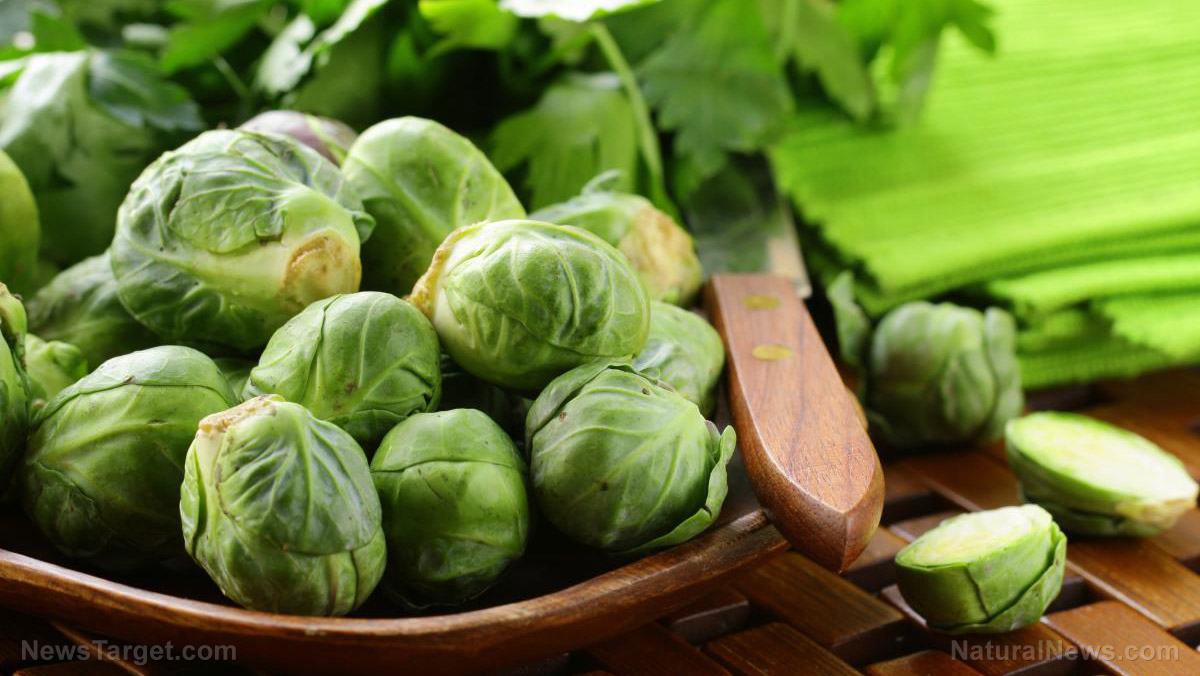
Advertisement
Even the most well-behaved children can be stubborn, especially when it comes to eating their veggies. If you’re tired of arguing with kids who refuse to eat the vegetables on their plate, try making this delicious, cheesy salad with Brussels sprouts, kale and almonds!
Why do kids hate Brussels sprouts?
Children often hate Brussels sprouts because of the cruciferous vegetable’s bitter taste. Experts suggest that an aversion to bitter and sour (or a heightened gag reflex) is a survival instinct, particularly since a lot of toxins have similar taste profiles. Meanwhile, sweetness often indicates that something is safe to eat, suggesting that children are born with a preference for sweet foods.
Thankfully, what you like to eat changes over time. As your kids grow older, they’ll learn to appreciate vegetables and the tasty dishes you serve, like salads and soups.
The incredible health benefits of Brussels sprouts
Brussels sprouts belong to the cruciferous vegetable family, like broccoli, cauliflower and kale.
One cup of Brussels sprouts only contains 40 calories. The same serving also contains only eight grams of carbohydrates and three grams of fiber.
Brussels sprouts are amazing superfoods that are rich in various vitamins, minerals, antioxidants and plant protein.
Brussels sprouts may not be as popular as other veggies, but there are many reasons to include them in a balanced diet.
They’re full of dietary fiber
One cup of cooked Brussels sprouts contains around four grams of fiber that helps regulate blood sugar levels and improves your digestive health.
Additionally, dietary fiber helps feed the “good” bacteria in your gut that can boost your mood and immunity and has anti-inflammatory properties.
They’re a natural source of vitamin C
A cup of cooked Brussels sprouts contains more than 150 percent of the minimum daily vitamin C target. This essential nutrient functions as an antioxidant.
Vitamin C also boosts your immunity and eye health. Finally, vitamin C improves iron absorption and has a crucial role in collagen production for healthy skin.
They’re also rich in vitamin K
One cup of cooked Brussels sprouts contains over 250 percent of the recommended daily target for vitamin K.
Vitamin helps blood clot and it has an important role in bone health. The nutrient can also help prevent bone loss.
They’re full of antioxidants
Brussels sprouts are rich in beneficial antioxidants. The results of one study showed that participants who consumed at least two cups of Brussels sprouts per day reduced damage at the cell level by at least 30 percent.
They can help reduce inflammation
As an anti-inflammatory superfood, Brussels sprouts may help lower your risk of chronic health problems like heart disease and cancer.
Brussels sprouts contain anti-inflammatory compounds that can help protect cells from DNA damage, fight aging and help manage inflammatory conditions like inflammatory bowel disease (IBD), rheumatoid arthritis, Type 2 diabetes and obesity.
A study has also shown that women who consumed more cruciferous veggies had lower levels of certain markers of inflammation in their blood and urine.
They can help with blood sugar regulation
Researchers have also found that the increased intake of cruciferous vegetables can help lower diabetes risk. Scientists believe that this is because Brussels sprouts contain potent antioxidants power and dietary fiber that helps regulate blood sugar and insulin levels.
Additionally, Brussels sprouts contain alpha-lipoic acid (ALA), an antioxidant that is being studied for its potential ability to help improve insulin function.
Cheesy Brussels sprouts salad
The recipe below is great for picky kids (and adults!) who don’t like Brussels sprouts. The salad combines Brussels sprouts with crunchy almonds, savory nutty Parmesan cheese and a sweet, tangy dressing.
Ingredients for 4 – 6 servings:
- 2 cups of de-stemmed kale leaves
- 1 cup of raisins
- 1 cup of sliced almonds
- 9 to 10 ounces of Brussels sprouts
- A 2-ounce block of Parmesan cheese
- Sea salt
Ingredients for the dressing:
- 3 tablespoons of olive oil
- 1 tablespoon of balsamic vinegar
- 1 tablespoon of maple syrup
- Sea salt
Preparation:
- Remove the leaves from the Brussels sprouts and leave the inner core behind. When you’re done, you should have about three cups of leaves. Let your kids help with this step so they can see how the salad is prepared.
- Place the leaves into the big bowl with the kale. Add the sea salt, then toss the greens.
- Grate the Parmesan cheese using the large holes of a box grater. Set the grated cheese aside.
- Toast the almonds in a small, dry saucepan over medium heat. Stir the almonds for at least three to five minutes or until lightly golden. Taste then set aside.
- To make the dressing, combine the vinegar, olive oil, maple syrup, and salt in a small bowl. Whisk the mixture, then taste and adjust the seasoning as needed.
- Add the toasted almonds and raisins to the bowl of shredded kale and Brussels sprout leaves.
- Pour a bit of dressing over the greens, toss, add the grated cheese, and toss again. Taste.
- Add more dressing if you want to before serving.
Tasty ways to cook Brussels sprouts
Avoid boiling Brussels sprouts, which makes them slimy and stinky. Instead, follow the tips below to make healthy and yummy dishes that your whole family will enjoy:
- To make oven-roasted Brussels sprouts, slice or quarter the veggies before lightly tossing in extra virgin olive (EVOO) or avocado oil, sea salt and black pepper. Cook the mixture for 30 to 40 minutes at 400 F until the outer leaves are golden and slightly crisp.
- Shave Brussels sprouts and add them to garden salads. You can also use EVOO sauteed shaved Brussels sprouts as a bed for lean protein like lentils or salmon.
- Add Brussels sprouts to omelets, soups, or stir-fries.
Don’t give up if your children hate leafy greens. Try this recipe for cheese Brussels sprouts salad to make sure your kids eat tasty veggies!
Sources:
Advertisements







